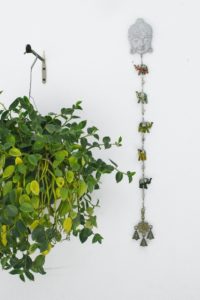Wondering which common indoor plants are dangerous to your health? Read on to find out!
Most homeowners love to spruce up the interior of their house with attractive houseplants. People love to keep multiple plants indoors as they improve indoor air quality, add some color to their rooms, and help make it more homely. However, many indoor plants are also toxic and can cause various health issues when touched and ingested. This is why you must do proper research before buying a plant for your home.
Here are some toxic indoor plants that are harmful to human health:
Devil’s Ivy
Also known as Pothos, Devil’s Ivy is quite a popular houseplant. It has stunning foliage, is pretty easy to take care of, and is inexpensive, which makes it a tempting plant to add to your indoor space. Even though it is perfectly safe to touch, consuming it will cause you to vomit and experience some swelling.
Peace Lilies
It is a pretty common flowering houseplant. The white flowers and dark leaves of Peace Lillie sake make them a pretty attractive addition to any home. Plus, they are also pretty low maintenance plants. However, when consumed, they are toxic to humans and even cats and dogs. This is why you should keep them far away from your children and pets.
Caladium
Also known as Elephant Ear plant, Caladium comes in a variety of bright colors, making them the ideal plant to spruce up your indoor space. Plus, it has velvety leaves, which can easily tempt curious toddlers to touch and even ingest them. However, consumption of Caladium leaves can cause eye pain, swelling, vomiting, and diarrhea. So, make sure to place them on higher shelves or somewhere out of your kids’ reach.
Poinsettia
Poinsettia has dark, pointy leaves and pretty red flowers, which is perhaps why it is a common Christmas present. However, when ingested, Poinsettia can cause vomiting and nausea. Furthermore, if your skin comes into contact with its sap, it can become irritated and red.
Sago Palm
Sago palms are great to improve the indoor air quality. However, these plants are also highly toxic. Ingesting any part of this plant can cause diarrhea, vomiting, and even liver failure. This is why you must keep it far away from your children to avoid accidental ingestion.
English Ivy
This plant with its tiny, pointy leaves creates a pretty picture. However, when ingested, it can cause vomiting, weakness, throat swelling, rash, dermatitis, and ataxia. So, make sure that your kids don’t come into contact with your indoor English Ivy.
You must conduct thorough research before bringing a plant into your home, particularly if you have curious and nibbling toddlers and pets. Even though you can keep toxic plants out of your children’s reach, it’s better to not buy them at all to keep your family safe.
If you’re worried about improving the indoor air quality of your home, then simply make sure to vacuum regularly and clean your ducts.
For reliable and professional duct cleaning services, visit our website today!


